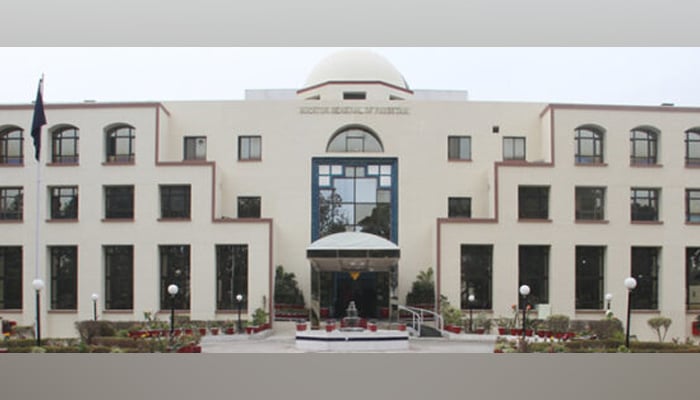Auditor general flags violations in govt employee loans
The study recommends improvements to the system
ISLAMABAD: Responding to concerns raised by President Dr Arif Alvi regarding the lack of transparency and adherence to criteria in granting loans to government employees, the Auditor General of Pakistan (AGP) has conducted a special study, revealing weaknesses and rule violations in the existing system of long-term advances to federal government employees.
The study recommends improvements to the system.
President Alvi had expressed the need to evaluate the loan-granting system to ensure transparency, merit, and fair play, highlighting concerns about the non-observance of criteria, specifically the existence of separate “regular” and “out of turn” lists for granting loans without clear criteria for prioritisation.
The issue surfaced during hearings of representations filed by various government officers and organisations, uncovering incidents of preferential treatment and violations of merit in loan extensions to government employees. These violations were found to be in contravention of general financial rules and approved criteria as of December 7, 2015.
The president had also noted that principal accounting officers of ministries sent employee lists to AGPR at their discretion, leading to preferential treatment and litigation.
In response to the president’s concerns, the AGP conducted a special study on long-term advances to federal government employees, revealing violations and discrepancies due to non-observance of existing rules and procedures. The study recommends eliminating preferential treatment and outlines areas for improvement in the loan-granting system.
It was established in 2015, in consultation with AGPR, that a revolving fund would allocate 10 percent for hardship cases, 25 percent for priority, and 75 percent for the general waiting list. However, the study found loans in hardship cases were granted without the hardship committee’s approval, and the 2015 decisions were not adhered to.
The study suggests that in the presence of a hardship provision, a separate priority list is unnecessary, emphasising strict adherence to the 10 percent quota for hardship cases. It calls for the processing of cases based on the hardship committee’s recommendations, as approved in 2015. Additionally, the study recommends framing proper rules and regulations for advance disbursement, displaying lists on the AGPR website for transparency, observing a minimum waiting period of three months for loan processing, and using the SAP system instead of manual processing.
-
 Emma Roberts Stars In 'A Body In The Woods'
Emma Roberts Stars In 'A Body In The Woods' -
 'Our Estrangements Can Kill Us': Meghan's Co-star Weighs In On Anthony Hopkins Interview
'Our Estrangements Can Kill Us': Meghan's Co-star Weighs In On Anthony Hopkins Interview -
 ‘Tone Deaf’ Andrew Called Out Over Arrogant Behaviour Amid Epstein Scandal
‘Tone Deaf’ Andrew Called Out Over Arrogant Behaviour Amid Epstein Scandal -
 Singing, Dancing & Outperforming: Watch China’s Robot Fair Ahead Of Spring Festival 2026
Singing, Dancing & Outperforming: Watch China’s Robot Fair Ahead Of Spring Festival 2026 -
 WhatsApp Under Fire: EU Steps Up Pressure On Meta Over Claims Of Blocking AI Rivals
WhatsApp Under Fire: EU Steps Up Pressure On Meta Over Claims Of Blocking AI Rivals -
 Steven Van Zandt Criticizes Bad Bunny's 2026 Super Bowl Performance
Steven Van Zandt Criticizes Bad Bunny's 2026 Super Bowl Performance -
 Katie Price Seen With New Hubby Lee Andrews Weeks After Tying The Knot
Katie Price Seen With New Hubby Lee Andrews Weeks After Tying The Knot -
 Biggest Order Yet Issued Against Andrew Mountbatten-Windsor: King Charles You Have To’
Biggest Order Yet Issued Against Andrew Mountbatten-Windsor: King Charles You Have To’ -
 ByteDance’s Seedance 2.0 Marks New Era Of Cinematic AI-generated Videos: Here’s How
ByteDance’s Seedance 2.0 Marks New Era Of Cinematic AI-generated Videos: Here’s How -
 Struggling With Obesity? Here's How To Manage It
Struggling With Obesity? Here's How To Manage It -
 How Epstein Scandals Are Impacting King Charles’ Healing As Stress Refuses To Relent: ‘Could Spell His End’
How Epstein Scandals Are Impacting King Charles’ Healing As Stress Refuses To Relent: ‘Could Spell His End’ -
 Why Prince William Releases Statement On Epstein Scandal Amid Most 'challenging' Diplomatic Trip?
Why Prince William Releases Statement On Epstein Scandal Amid Most 'challenging' Diplomatic Trip? -
 Ciara, Russell Wilson Become Matchmakers For Pals?
Ciara, Russell Wilson Become Matchmakers For Pals? -
 Historic Mental Health Facility Closes Its Doors
Historic Mental Health Facility Closes Its Doors -
 Top 5 Easy Hair Fall Remedies For The Winter
Top 5 Easy Hair Fall Remedies For The Winter -
 Japan Elections: Stock Surges Record High As PM Sanae Takaichi Secures Historic Victory
Japan Elections: Stock Surges Record High As PM Sanae Takaichi Secures Historic Victory




